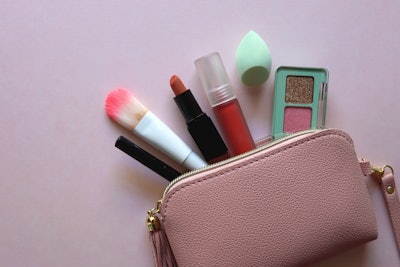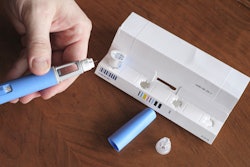
Frequent use of everyday personal care products (PCPs) traditionally designed for women may significantly increase the risk of developing adult-onset asthma within this population. That’s the result of the new study, “Personal Care Product Use and Risk of Adult-Onset Asthma: Prospective Cohort Analyses of U.S. Women From the Sister Study.”
The research results were recently published in the journal, Environment International. It was conducted as part of the long-running Sister Study (2003-2009), a National Institute of Environmental Health Sciences (NIEHS) study that focuses on women who have sisters with a specific disease, such as breast cancer.
The study analyzed data from more than 39,000 U.S. women, aged 35–74 and with no prior asthma diagnosis for a period of 12.5 years, and examined the use of beauty, hygiene, skincare and hair products. Researchers reported 1,774 new cases of adult-onset asthma over the study period and found that women who moderately and frequently used those products had a 19–22% higher risk of developing asthma compared to infrequent users. The findings suggest that chronic exposure to endocrine-disrupting chemicals (EDCs) commonly found in PCPs — such as parabens, phthalates and phenols — may play a role in triggering asthma later in life.
Researchers noted that previous population studies have linked prenatal exposure to EDCs in PCPs and childhood asthma. However, few studies have investigated adult-onset asthma. This study is the first of its kind to examine the effects of complex mixtures of PCPs on asthma risk in adult women.
The study used advanced statistical techniques, including latent class analysis and LASSO regression, to identify patterns of PCP use and their association with asthma. Notably, beauty products such as foundation, blush and anti-aging creams were among the strongest contributors to increased risk. Hygiene and skincare products also showed similar associations, while everyday hair products did not show a significant link — possibly due to the exclusion of episodically used items like hair dyes and relaxers.
Researchers also noted that the risk was particularly pronounced among postmenopausal women and varied by race and ethnicity, though more diverse and larger samples are needed to confirm these trends.
Although the U.S. Food and Drug Administration (FDA) oversees cosmetic safety, it does not require premarket approval for most products, and manufacturers are not obligated to disclose all ingredients or report adverse effects. The 2022 Modernization of Cosmetics Regulation Act aims to strengthen oversight.
According to the study’s authors, this research underscores the urgent need for regulatory reform and consumer education.























